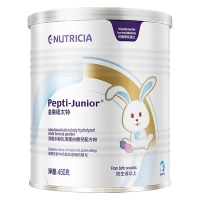How Many Glasses of Water Should We Drink a Day?
More than 2,000 years ago Hippocrates c (460–377 BC) said, “If we could give every individual the right amount of nourishment and exercise, not too little and not too much, we would have found the safest way to health.” What does that mean when it comes to water? Water has been described as a neglected, unappreciated, and under-researched subject, but a lot of the papers extolling the need for proper hydration are funded by the bottled water industry. Turns out the often quoted “drink at least eight glasses of water a day” has little underpinning scientific evidence.
Where did they come up with that then? The recommendation was traced back to this 1921 paper, in which the author measured his own pee and sweat, and determined we lose about 3% of our body weight in water a day, which comes out to be about eight cups. Consequently, for the longest time, water requirement guidelines for humanity were based on just one person.
But now there’s evidence suggesting not drinking enough water may be associated with falls and fractures, heatstroke, heart disease, lung disorders, kidney disease, kidney stones, bladder and colon cancer, urinary tract infections, constipation, dry mouth, cavities, decreased immune function, and cataract formation.
The problem with many of these studies, though, is that low water intake is associated with several unhealthy behaviors, such as low fruit and vegetable intake, more fast food, less shopping at farmers markets. And think about it—who drinks lots of water? Those who exercise a lot; no wonder they have lower disease rates.
Only large and expensive randomized trials could settle these questions definitively. But given that water cannot be patented, such trials seem unlikely; who’s going to pay for them? So we’re left with studies that link disease with low water intake. But are people sick because they drink less, or are they drinking less because they’re sick? There have been a few large prospective studies in which fluid intake is measured before disease develops. For example, a Harvard study of 48,000 men found that the risk of bladder cancer decreased by 7% for every extra daily cup of fluid one drinks. So a high intake of water—like eight cups a day, eight times seven, may reduce the risk of bladder cancer by about 50 percent, potentially saving thousands of lives.
The accompanying editorial commented that strategies to prevent the most prevalent cancers in the West are remarkably straightforward in principle. To prevent lung cancer, quit smoking; to prevent breast cancer, maintain your ideal body weight and exercise; and to prevent skin cancer, stay out of the sun. Now comes this seemingly simple way to reduce the risk of bladder cancer: drink more fluids.
This is probably the best evidence we have for a cut off: 20,000 men and women in the Adventist Health Study—about half vegetarian, so they were also getting extra water by eating more fruits and vegetables–and those drinking five or more glasses of water a day had about half the risk of dying from heart disease compared to those who drank two or fewer glasses a day. And like the Harvard study, this protection was after controlling for other factors such as diet and exercise. So they suggest it was the water itself–perhaps by lowering blood viscosity, meaning thickness.
So based on all the best evidence to date, authorities from Europe, the U.S. Institute of Medicine, and the World Health Organization recommend between 2 to 2.7 liters of water a day for women. That’s 8 to 11 cups a day for women, and 10 to 15 cups a day for men. Now but that’s water from all sources–not just beverages–and we get about a liter from food and the water our body actually makes. So these translate into a recommendation for women to drink 4 to 7 cups of water a day, and men 6 to 11 cups, assuming only moderate physical activity at moderate ambient temperatures.
We can also get water from all the other drinks we consume, including caffeinated drinks, with the exception of stronger alcoholic drinks, like wines and spirits. Beer can leave you with more water than you started with, but wine actively dehydrates you. Note, though, in the cancer and heart disease studies I mentioned, the benefits were found only with increased water consumption–not other beverages–so unless you have conditions like heart or kidney failure, women should drink 4 to 7 cups of water a day and men should drink 6 to 11.
To see any graphs, charts, graphics, images, and quotes to which Dr. Greger may be referring, watch the above video. This is just an approximation of the audio contributed by Katie Schloer.
Please consider volunteering to help out on the site.
相关知识
How Many Glasses of Water Should We Drink a Day?
Hydration: How to Stay Hydrated in 6 Steps
CamelBak's Daily Hydration & Wellness Tips
How To Attain The Ultimate Body Wellness (11 Beautiful Habits)
Recognizing Dehydration Symptoms
关于健康生活的英语作文(精选20篇)
健康的英语作文(精选66篇)
英语小作文:介绍如何保持健康How to keep health
初中英语作文:怎样保持健康?(通用18篇)
健康的生活方式英语作文(精选21篇)
网址: How Many Glasses of Water Should We Drink a Day? https://m.trfsz.com/newsview1123460.html
